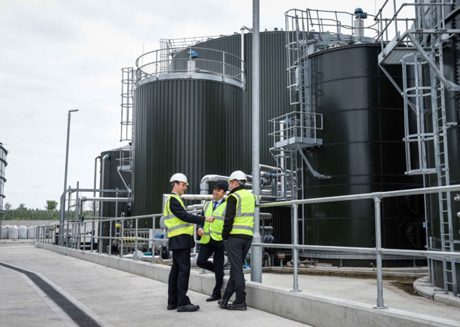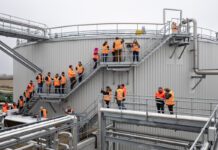
Almost a third more biogas energy is being produced in the UK compared to this time last year, according to new figures from industry trade body ADBA.
The AD Market Report, published at UK AD & Biogas 2016 (6 and 7 July), shows that the UK now has 617 MWe of biogas capacity, enough to power the equivalent of 800,000 homes.
However, the report also warns that growth in the industry has slowed, and will slow further in each of the coming four years due to government policy decisions and investment uncertainty.
Recent government decisions have reduced the new AD energy generation capacity that ADBA expects to be installed by winter 2018 by 250 MW, which is 10% of the winter 2018 capacity margin.
In particular, small scale farm AD is being reduced to handful of plants being constructed per year, despite the Committee on Climate Change recommending that it should be used to meet carbon budgets. The government is on course to close renewable electricity incentives to new AD applications in 2018.
Subject to final decisions from government this autumn, the Renewable Heat Incentive is expected to fund deployment of 10-20 new biomethane to grid plants from 2017, slightly down on 2015 and 2016.
The ADBA Market Report shows that there are still over 400 plants with planning permission granted or applied for, illustrating the strength of the pipeline which could be delivered with the right support.
Charlotte Morton, Chief Executive of the Anaerobic Digestion and Bioresources Association, launched the report. In her speech to delegates at UK AD & Biogas 2016, Charlotte said:
“The latest ADBA Market Report shows just what has been achieved by the AD sector. Almost a third more capacity in the past year; double the number of biomethane to grid plants; enough capacity to recycle over 2m tonnes of food waste; and the equivalent capacity to power around 800,000 homes.
“However, our report also shows an opportunity at risk. Using existing technology and feedstocks, the AD industry could be four times bigger than it is today – but government decisions to scale back electricity support, and uncertainty over heat and waste policies, mean that we could lose as much as 250MW of potential capacity over the next two years. That’s enough to increase our tight winter electricity capacity margin by 10%.
“The Committee on Climate Change have said that getting biodegradable waste out of landfill and using AD to cut farming emissions is crucial to meet the carbon budgets set under the Climate Change Act. It’s now time for the government to set policies which will deliver those goals.”







